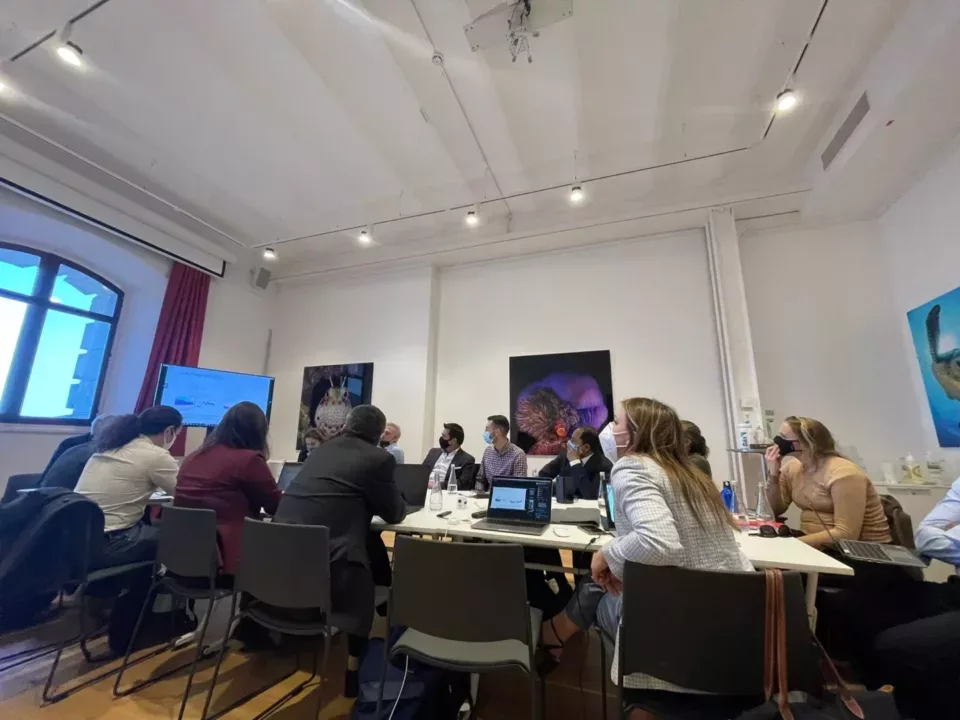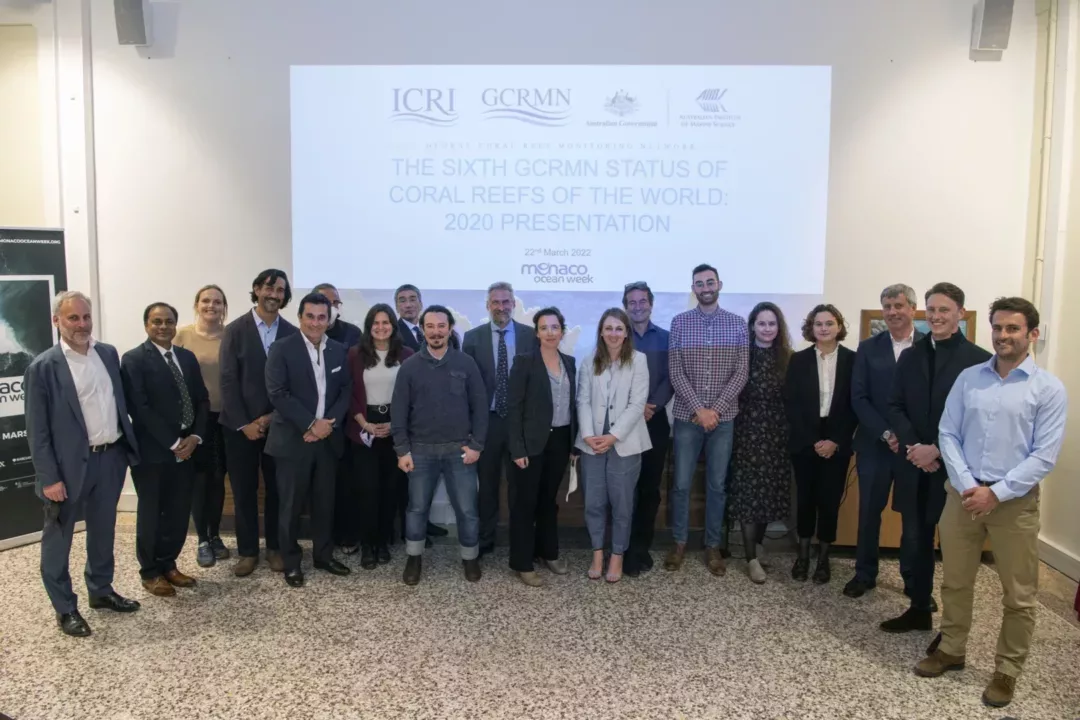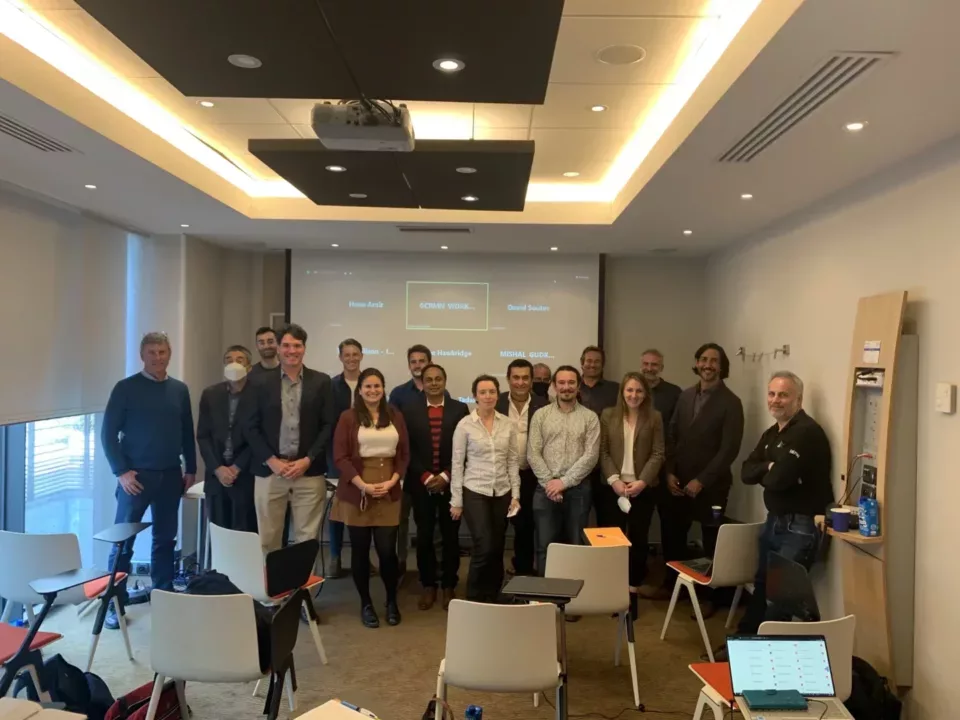
The Global Coral Reef Monitoring Network (GCRMN), an operational network of ICRI, organised three days of productive in-person meetings in Monaco, from 22nd – 24th March 2022. At the occasion of Monaco Ocean Week, these fruitful events included a Steering Committee meeting, a workshop focusing on Data Solutions, and a public presentation of the GCRMN flagship report, The Sixth Status of Corals of the World: 2020 Report.
Steering Committee meeting – 22nd March 2022
Kicking off the events, the Steering Committee meeting consolidated the key actions and aims for the GCRMN in the near future, as agreed upon during the previous Steering Committee meeting on February 7th, 2022. This meeting laid the foundations of the main challenges and discussion points for the subsequent Data Solutions Workshop, as most challenges faced by the GCRMN are data related.

Sixth GCRMN Status of Coral Reefs of the World: 2020 report Presentation – 22nd March 2022
The evening of the 22nd of March saw an open event for the presentation of the Sixth GCRMN Status of Coral Reefs of the World: 2020 report at the Oceanographic Museum. The report is the first global status of coral reefs since 2008 by the GCRMN, and the first based on a quantitative analysis of a global dataset produced from contributions from several hundred scientists and organisations from 73 reef-bearing countries.
The evening presentation was opened by His Excellency Bernard Fautrier, Minister plenipotentiary, Special advisor of His Serene Highness the Sovereign Prince of Monaco for environment, who reminded the attendeesof the critical importance of coral reefs. It was then followed by an introduction by Dr Erica Towle, from the National Oceanic and Atmospheric Administration (NOAA) Coral Reef Conservation Program who spoke on behalf of the ICRI co-chairs, the United States of America, and an address by Takehiro Nakamura of the UN Environment Programme (UNEP) on the importance of the GCRMN for UNEP and coral reefs. Dr David Souter of the Australian Institute of Marine Sciences (AIMS), who acts as the global coordinator for GCRMN, presented the report alongside Dr Serge Planes of the French Centre for Island Research and Environmental Observatory (CRIOBE). Other talks included the presentation of the workflow used to integrate ecological monitoring data from different sources by Jérémy Wicquart, a PhD student at CRIOBE and a reminder of the importance of socio-economic data for coral reef monitoring by Sandrine Pivard of the Regional Activity Center for Specially Protected Areas and Species of the Caribbean (SPAW-RAC).

Data Solutions Workshop – 23rd – 24th March 2022
The hybrid workshop brought together over 30 coral reef data experts and stakeholders from around the world.
Many of the improvements identified through the production of the GCRMN Status of Coral Reefs of the World: 2020 report have their origin in data (i.e. how and what data are collected and how they are stored, shared and reported).
The broad objectives of the GCRMN workshop were thus to build on existing global and regional data initiatives, identify the challenges preventing FAIR (Finable, Accessible, Interoperable and Re-usable) coral reef monitoring data, and describe a resourced data solution that can support the GCRMN and the broader global coral reef monitoring network. Key outputs from the meetings included an action plan for the GCRMN to implement a data solution and enhanced collaboration with other coral reef monitoring initiatives and data contributors.

The GCRMN looks forward to building a strong data solution for the broader global coral reef monitoring network, based on the challenges identified in the workshop and acting as a complement of existing data initiatives.
